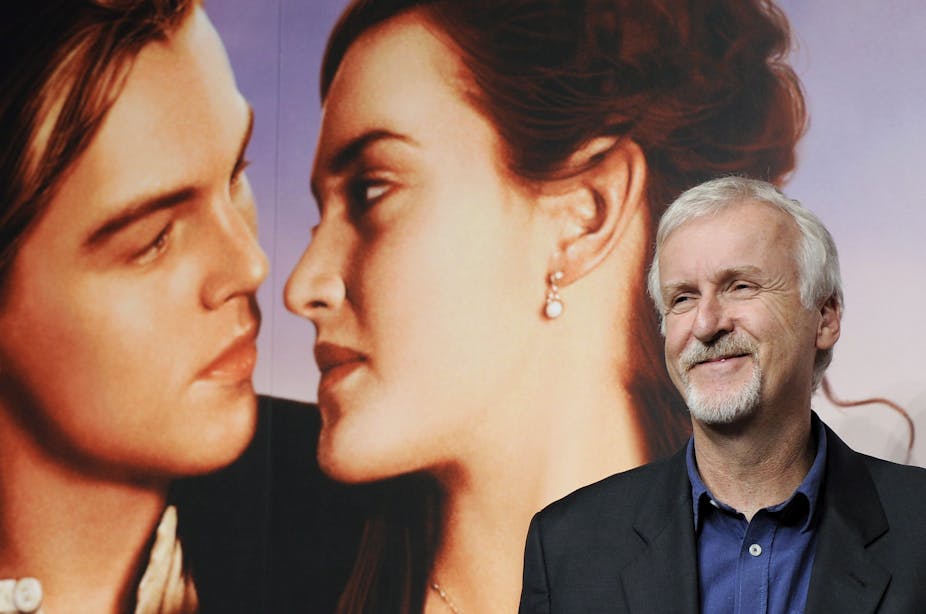Trending on Twitter this week has been Gen Y shock and awe that Titanic isn’t just the name of a film. Apparently someone has accidentally stumbled onto the fact that the Titanic story was a tad more than just a bad Celine Dion song and some King of the World-ing on the prow of a ship. OMG why didn’t someone tell me this sooner?
There’s an easy story here about dumb kids. A tale of stupidity, naiveté and the downside of education gleaned largely from the screen. A more interesting story however, is the question of why Titanic should be considered more important than any other historic event.
Like many disasters – think the Hindenberg crash or the Challenger explosion – for reasons of sympathy and curiosity and quite possibly even a little schadenfreude – we remain fascinated decades and decades post-fact. Bad news sells and the worse the news, the higher the death toll and the more preoccupied we are.
Only the explanation for why Titanic has been prioritised as a historic event has much less to do with the high death toll and far more to do with James Cameron Inc’s interest in keeping us fascinated.
The RMS Titanic hit the iceberg in 1912. 1500 people were killed, Leonardo DiCaprio was not one of them, nor even was his character Jack Dawson who - like much of the film – was thorough fabrication. A whopping loss of life, to be sure, but lots of equally horrible stuff has happened since, thousands and thousands of other people have died tragically, and rarely have any of them been treated to the loquacious prominence as the Titanic story.
Two years after the Titanic disaster, 1000 more people were killed when the Empress of Ireland hit a Norwegian ship. No blockbuster film, no box office records and no elevation of it in collective memory. In 1945 the Wilhelm Gustloff ship was torpedoed, killing over 9000. The Doña Paz ferry in the Philippines sunk and 4000 lost their lives in 1987. The Haitian ferry the Neptune capsized in 1993 and killed over 1500.
Way worse things have happened at sea. And if large scale loss of life is the key to importance, the Titanic pales in comparison to other post-1912 catastrophes. Think some fifteen million from famine in China and at least 100,000 from flood in Vietnam. Just for starters.
The Titanic story is told and retold and has been gifted a ridiculous and gratuitous amount of airplay recently not just because it’s the 100th anniversary of the voyage, but because a 3D rehash of the 1997 blockbuster has been released and because someone has to pay for it. Our interest is being cultivated for commerce rather than commemoration.
Of course, all of those more significant - and quite possibly more noteworthy - disasters aside, another question to ask is whether kids believing that the Titanic was just a film isn’t actually a good thing. Perhaps them thinking of it as fiction helps usefully mitigate muddling of history with Hollywood.
Only the scantest knowledge of British history for example, will tell you that the Margaret Thatcher story was a whole lot more complicated than The Iron Lady presented. If you were a homosexual or a Communist or any kind of presumed dissident, J. Edgar probably seemed revoltingly kind to Mr Hoover. Not to mention the accuracy concerns plaguing flicks such as Michael Collins, The Hurricane and Confessions of a Dangerous Mind.
Biopics and films based on “true” stories serve a purpose, undoubtedly, but their primary goal is entertainment. To pretend that 90 minutes in a cinema with a vat of popcorn gives you enough data to be informed is farcical.
Indeed, a bunch of kids “discovering” that the Titanic happened in real life long before the 1997 celluloid incarnation is laughable. More ridiculous however, is the extreme priority given to the Titanic story as though we’re being peddled history more readily than cinema tickets.

